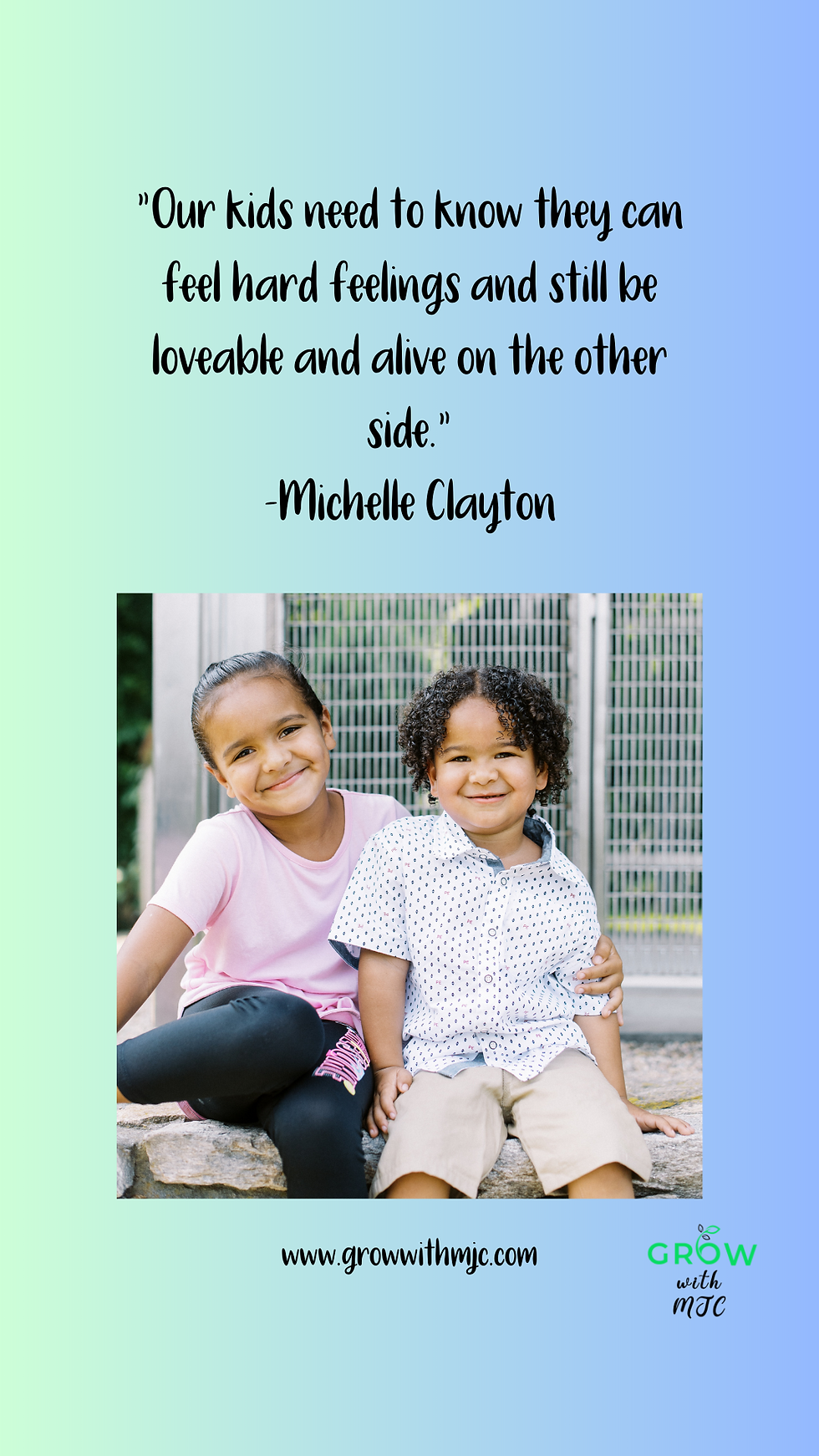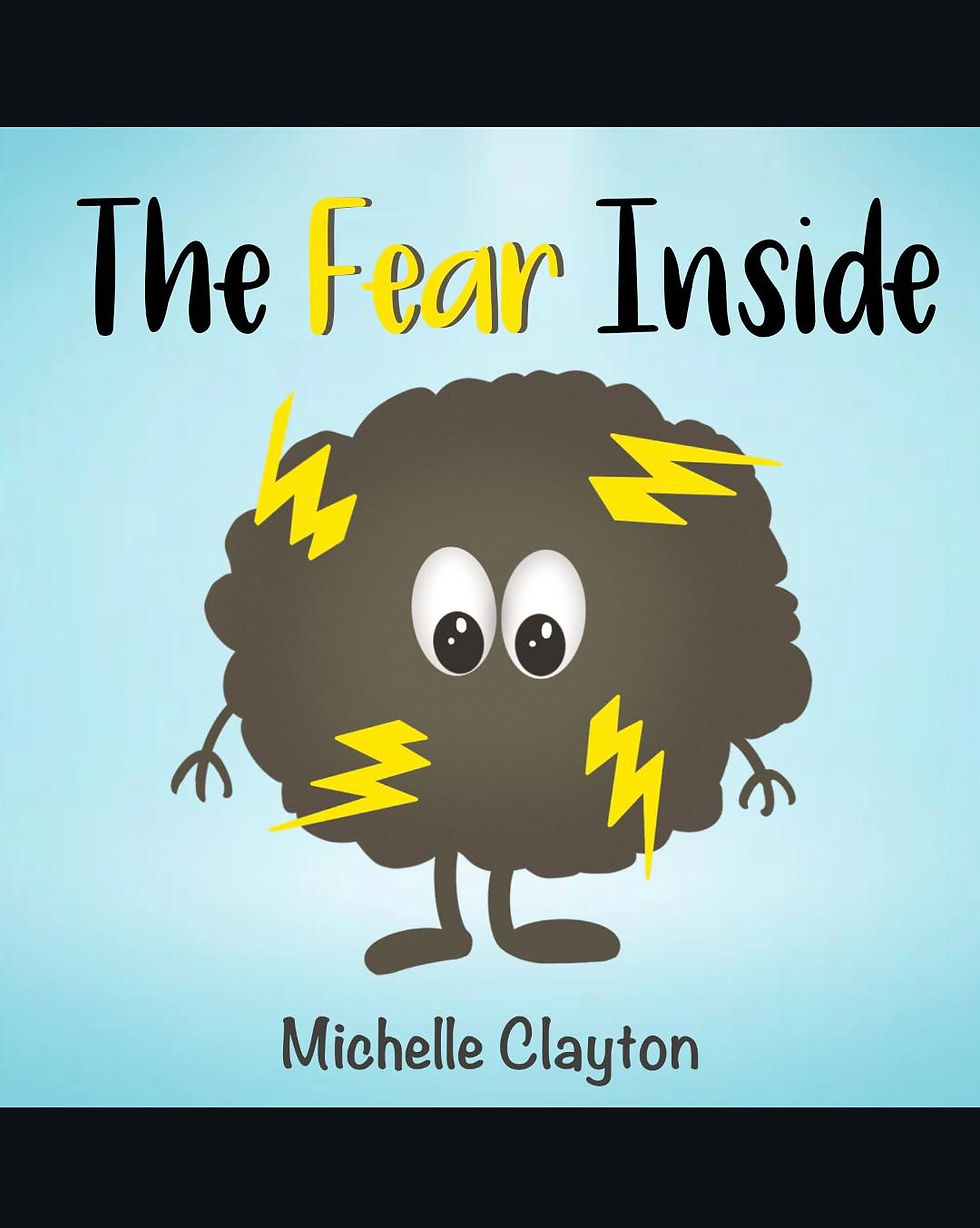How to Help Stop the Inner Critic in Your Child
- Michelle Clayton
- Jun 13, 2023
- 4 min read
Tonight my daughter decided she wanted to make rice and the rice cooker was dirty.
She's 8 so she took it upon herself to wash the dish.
I was fine with it, but the rule" in my house is simply: If you make a mess you clean it up.
So about 5 minutes later I heard a screaming giggle and I looked up at her stepping back and her shirt was completely soaking wet.
I saw her step back to the sink to turn it on and it sprayed everywhere (apparently the pot was just in the right spot so the water sprayed as it hit it).
She looked directly at me waiting for my reaction.
I had a choice.
I could be annoyed and grumpy because now there was water everywhere or realize, one it has happened to me and two she's a kid.
I just laughed, then she laughed with a huge smile on her face. And then she cleaned all the water and mess up by herself.
I share that story because I think we sometimes have unrealistic expectations of kids that we don't even hold ourselves to.
Have I spilled water and made an absolute mess? yes.
Did I clean it up? Yes.
Would it help me at all if I had someone screaming or shaming me because I made a mess? No.
Have I watched my daughter do the same thing and then turn around and say "I am so stupid"? Yes.
Why am I telling you this story? Well, here is the thing.
My mom did her best when I voiced that I didn't feel beautiful or some kind of insecurity only to counter with, "oh hunny, of course you ARE!"
When your kid comes to you and mentions an insecurity what do you typically say?
If they were to say something like "I'm stupid", is your response "No you aren't! You are so smart!"
Listen I get it. I know. I used to do the same thing.
Look at it this way. Have you ever worn an outfit you just do NOT feel comfortable in for whatever reason?
No matter how many compliments you get they don't resonate, because your INTERNAL experience will not be over ridden by a few peoples external validation.
What if kids are making statements like "I'm stupid", its because that's the reality of THEIR internal experience in that moment.
It does not mean it is true, nor does it mean they will believe that forever.
But Invalidating what they are experiencing by contradicting them will just make sure that the feeling stays in their mind and body.
And if we are really aware of our own past, it will probably become part of their own inner critic.
So what do you do in these moments?
Well, I can only tell you what I have learned to do.
First, just listen.
Second, validate.
Third, question the thought.
I dove deep into Byron Katie's The Work, a while ago and she goes over her process of questioning the thoughts.
Our thoughts are beliefs that we have repeated so much so we regard them as truths.
According to Katie, when we question the thought it gives us an opportunity for a more peaceful way of thinking and feeling.
Most of us are walking around with a lot of unproven beliefs that impact us daily.
So let's get back to the "I'm stupid" comment.
So if one of my kids comes to me and makes a general statement about themselves, I get curious.
"Oh wow, that must be really hard. Can I ask what happened to make you think that? How does that make you feel?"
Usually the response is general like "because I'm stupid and it makes me sad". Or they will tell me story about what happened.
"I can understand that, that must be really hard. Its not fun to feel sad. Wanna know something? Did you know there has been times mommy has FELT stupid! But do you think mommy IS stupid?"
That's usually met with, "no mommy you aren't stupid."
"So can I ask you a question? Is it true that you are stupid?"
That is usually met with "Yes, I am stupid."
That's when I volley back with, "is that really true? Hmmm, lets see, you can read, and write. You put that puzzle together last week. And what about XYZ (insert whatever activity that takes mental power to accomplish, learned a new thing, etc etc)."
When possible, I try to get them talking about all the ways we can disprove the statement "I am stupid." If not I will explain the difference between feeling stupid and being stupid.
We can all feel stupid or embarrassed about something we did or didn't do. BEING is about a constant state. I don't know any individual that does have a streak of some genius in them.
I also have a tendency to look for the good in others and want my children to do the same. I refuse to teach them that there are stupid people. I will teach them that we all make stupid choices and that's sometimes how we learn best.
Mistakes are just ways we found what doesn't work for us. They don't make us bad, or good, they are simply there to learn.
I want to teach my kids that we are all human, we all make mistakes. I want them to understand they don't have to be perfect, and we can still strive for better.
I want to show them how I embrace my mess ups and that I am compassionate with myself and still can be sad or upset when I make a mistake, but that doesn't have to stop me.
This is how we grow to become our kids Trusted Grown-up™. Holding the space for them to learn and discover themselves without judgement.
They will have these thoughts regardless if you are aware of it or not. I am just grateful they share them with me.
Teaching our kids how to be more compassionate to themselves might just make the world a kinder place to live.
Sending Love,
Michelle






Comments